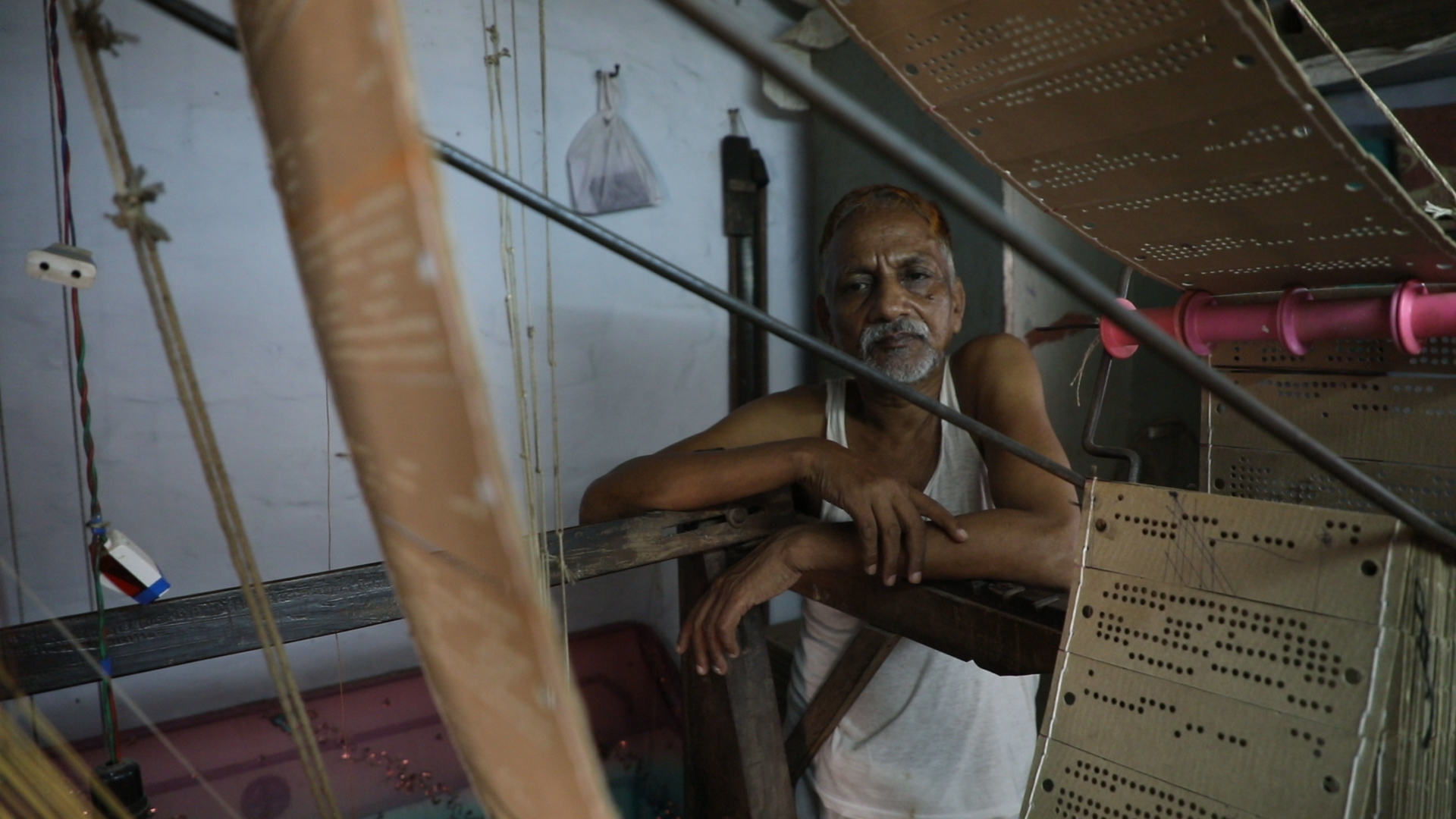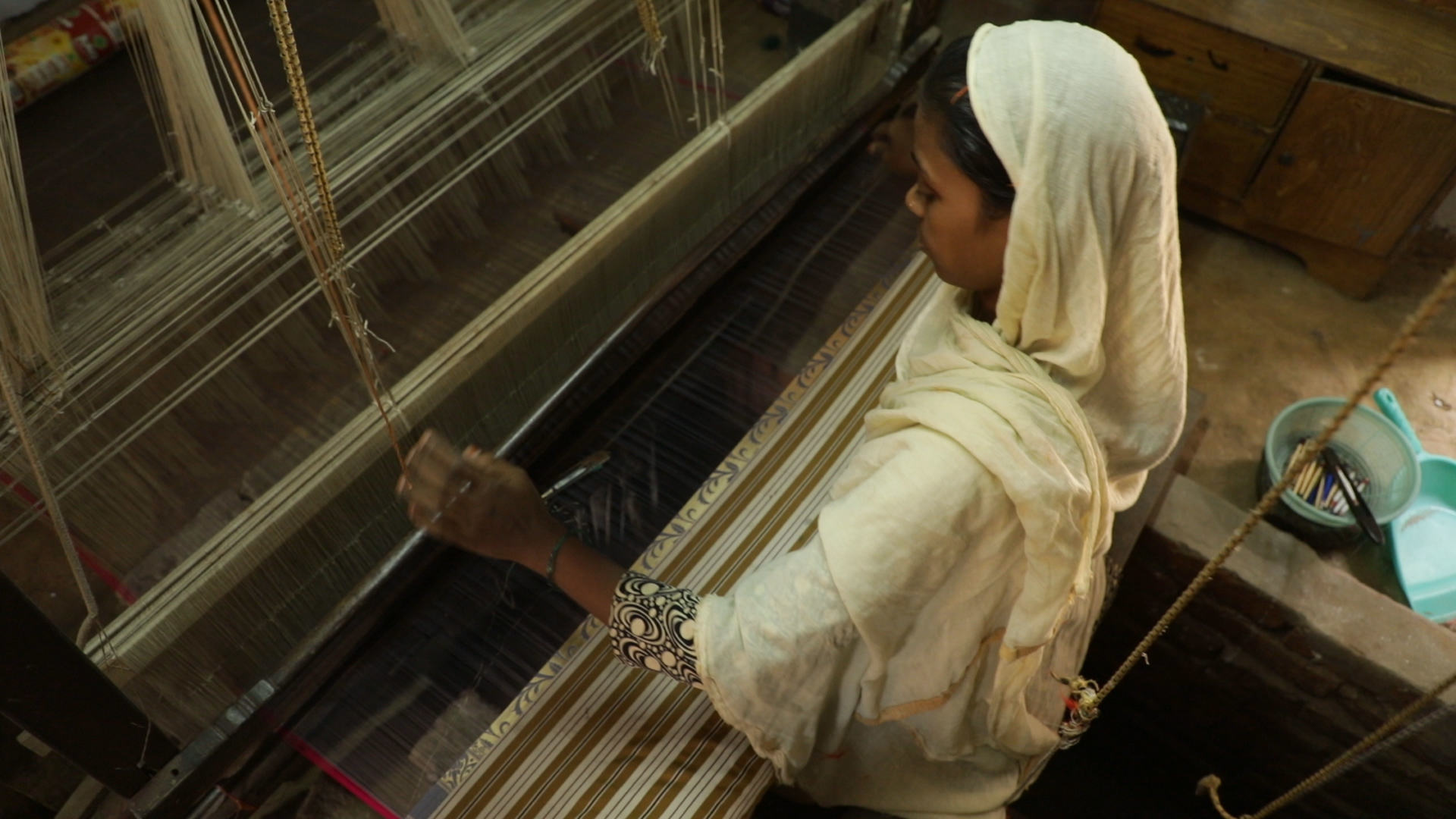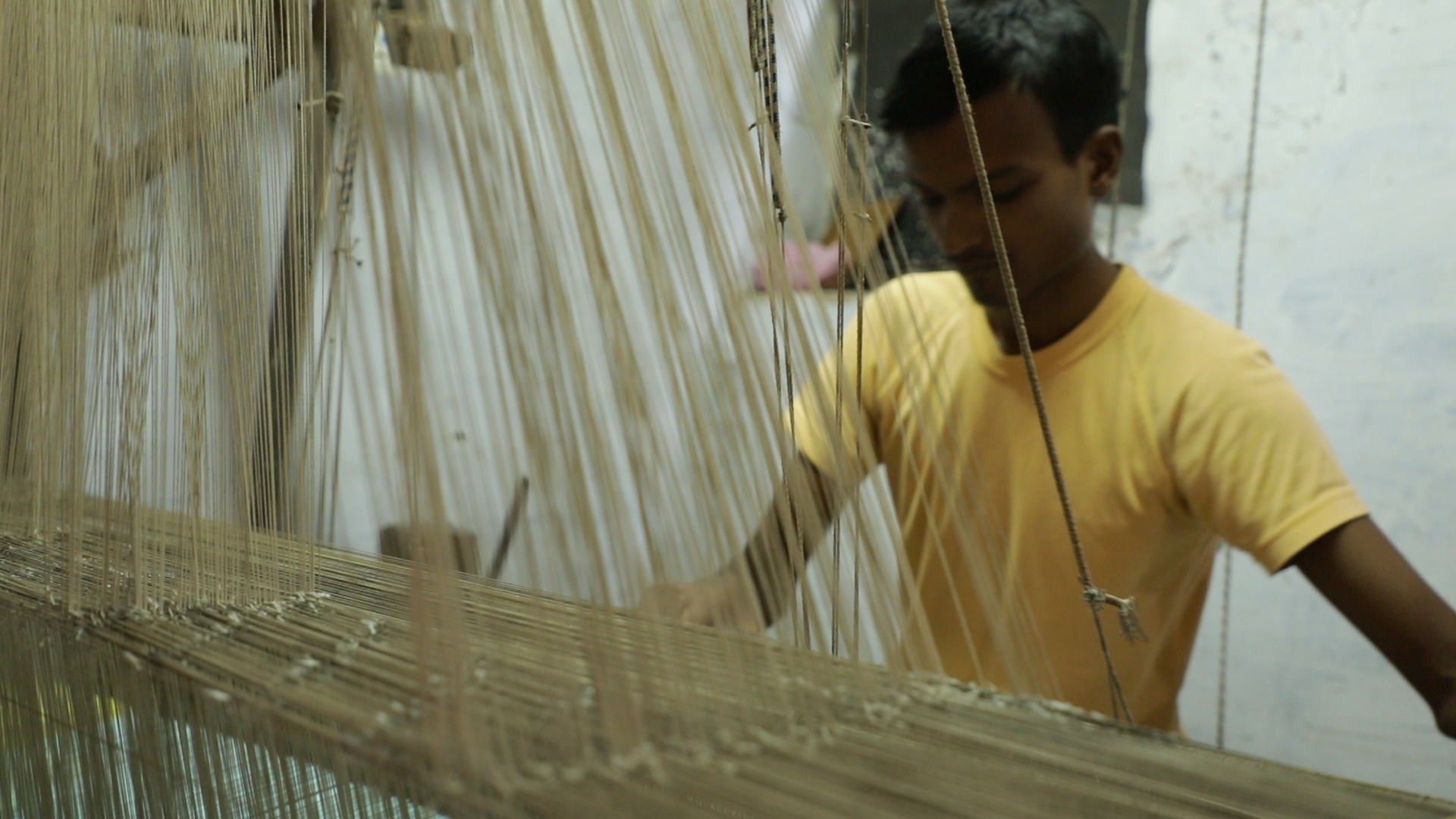The Banarasi saree industry is losing about Rs 24 crore/day, nearly six lakh weavers badly hit
The weavers and traders have incurred huge losses. They feel if effective steps are not taken soon by the government, the business of Banarasi sarees would be pushed to extinction

“No work has been happening for the past two-and-a-half-months. So, today I thought of cleaning up. I have no idea when the work will start again,” said Abdul Ali Wahid, 63, who has been working as a banarasi saree weaver for about 50 years.
When the Gaon Connection team met him at his house in Gauriganj town, which is close to Varanasi in Uttar Pradesh, he was cleaning his handloom. The weavers from Varanasi, who weave the world-famous Banarasi sarees, could not escape the impact of the lockdown which was imposed across the country in the wake of the coronavirus pandemic. About six lakh weavers and their families are in distress. There is also uncertainty as to when things would be back to normal.
Wahid said: “We have had no work for the last two months. We used to work for 12 hours before the lockdown and earn Rs 100 to 150 per day. Not that we were earning very well, but we were still somehow managing. This is why I don’t want my children to take this trade up.”
He added: “We did not get any compensation for our loss of livelihood during the lockdown. If we had gotten cash, at least I could have repaid the money that I am borrowing to run my expenses. Although people are saying that the government is helping, but we did not get any help.”

According to the Banaras Textile Industry Association, the Banarasi saree business has lost about Rs 24 crore per day during the lockdown. Its annual turnover is more than Rs five billion. About six lakh people are directly and indirectly involved in this business.
There are many areas in Varanasi like Saraiya, Jalalipura, Amarpur, Batlohiya, Koniya, Shakkartalab, Nakki Ghat, Jaitpura, Alaipura, Bari Bazaar, Pilikothi, Chittanpura, Kazisaddulapura, Jamaluddinpura, Katehar, Khojpura, Kamalgarha, Puranapul, Baluabir, Nati Imli, where lakhs of weavers are involved in Banarasi style of weaving. The weavers, who were already dealing with a general slowdown, are in grave distress because of the lockdown.
Reshma, who lives in the Alaipura area, used to put embellishment on sarees. That’s how she was supporting the education of her children. But her work has stopped since the lockdown. Now she was no work, and no money. “I don’t know when the work will restart. We used to work from home so our work shouldn’t have got affected. I could have still earned,” she said.

Not just the weavers, the traders are incurring losses too.
Rizwan Ahmad is an old Banarasi saree trader from Madanpura in Varanasi and also makes the sarees himself. Sarees were scattered everywhere in his showroom. It seemed that no one had been there for many days. “This was the peak season. March to June was the wedding season. The sales used to be good. My showroom used to be packed with customers. The factory has also closed. Many artisans have gone home. Also, we are not getting enough raw material. It seems that things won’t be normal anytime soon,” he said.
The Banarasi business falls under the cottage industry. A large number of women are also associated with this work. The silk for Banarasi sarees comes mostly from China, the epicenter of coronavirus. So, there has been a shortage of raw material since February. The traders are now also concerned that even if the work resumes, it would be difficult to bring it back on track.

Varanasi produces silk, cotton, Butidar, Jangla, Jamdani, Jamawar, Cutwork, Chiffon, Tanchoi, Korangaja, Muslin, Nilambari, Pitambari, Shwetambari and Raktamari sarees that are also exported to other countries, including Sri Lanka, Switzerland, Canada, Mauritius, USA, Australia and Nepal.
Ashok Dhawan, a patron of the Banarasi Textile Industry Association, and a Banarasi sarees businessman, said: “More than one lakh families are associated with the Banarasi saree industry in Varanasi. Their livelihoods are dependent on it. This is why, if the Banarasi saree business gets affected, it affects other things too. The ban on the import of Chinese silk has affected the saree industry. Most of the silk used in Banarasi sarees and dress materials comes from China. The saree industry is suffering heavily.”
He also said that it could take him up to one year to recover from the losses that had been caused so far. When asked what are the traders expecting from the government, he said: “We don’t want any kind of subsidy from the government. We simply want the government to promote Banarasi sarees substantially. This is the only way to salvage this whole trade because the work is completely stalled and the losses have mounted up. If some effective steps are not taken soon, the work of Banarasi saree will be pushed to extinction.”

